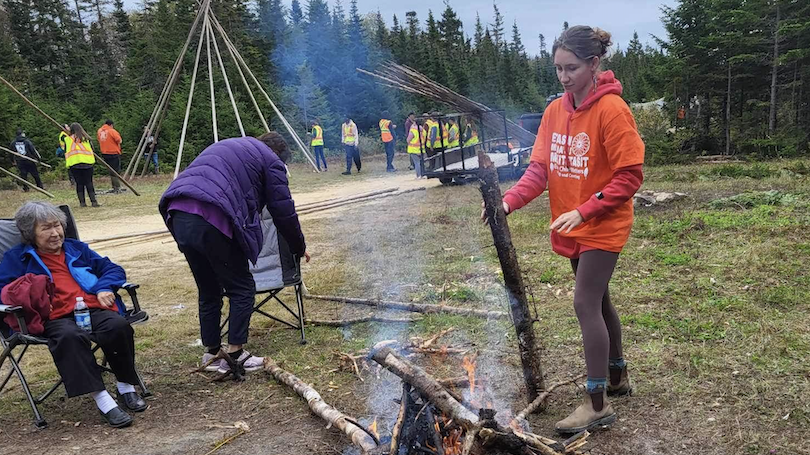
- Undergraduate
- Off-Campus Program
- Research
- News & Events
- People
Back to Top Nav
Back to Top Nav
How does traditional Mi'kmaw medicine interact with Western medicine to heal intergenerational trauma?
During the fall term of 2023, Abby Burgess '25 spent 12 weeks in her homelands: Eskasoni, Nova Scotia, a community on Cape Breton Island, known as Unama'ki in Mi'kmaw, with a population of about 5,000.
Since the 1500s, the community has spent centuries facing injustice at the hands of European settlers and more recently, the Canadian government. Notable events include the introduction of alcohol into Native communities, the Treaty of Utrecht, scalping proclamations, fatal starvation, the Indian Act, Residential School Systems, prohibition of cultural participation, and centralization of communities.
Through her research, Burgess illustrated how the build-up of injustice takes a toll on community's wellness and what effective culture-based solutions might look like. This study aimed to explore how traditional Mi'kmaw medicine and healing interacts with Western medicine and psychology. "I spent considerable time digging into how culturally-informed mental health tools can pave a path toward healing intergenerational trauma. Down the line, I hope information gathered through this independent research will inform more robust and culturally-informed Indigenous-led mental health organization," said Burgess.
While Burgess conducted interviews and read and researched the topic, she learned the most through hands on experience, including a day on a moose hunt and time learning the plants used for traditional medicines.
She will be continuing work as the youth lead researcher for Eskasoni Mental Health Services and ACCESS Open Minds, shaping a toolkit for the youth to promote mental health awareness, support gender wellness, and strengthen relationships in the community. Burgess acknowledges that there are few pockets in the undergraduate realm that entail a collaboration of these disciplines and is thankful for the opportunity to learn more about the community, its strengths, weaknesses, resources, and goals.
This work was made possible through support from the Gordon Russell '55 Academic Enrichment Endowment.